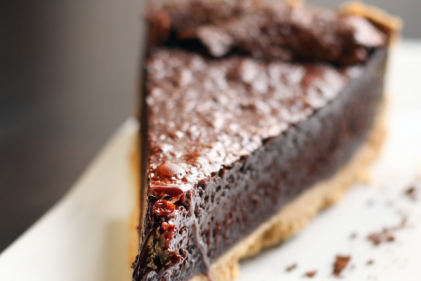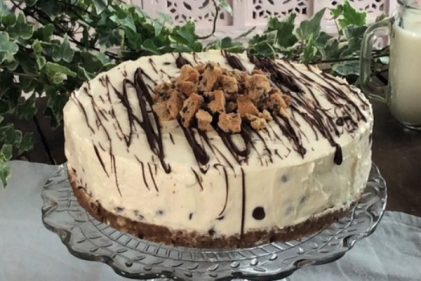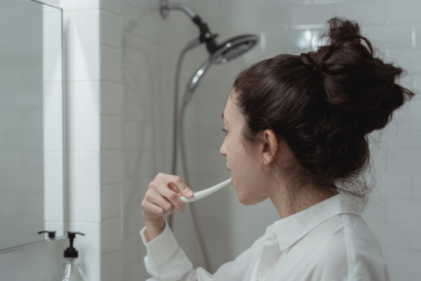
We have a wonderful window of opportunity during the precious nine months of pregnancy to establish strong foundations for our baby – foundations that will help support vibrant, robust health for the rest of their lives.
When it comes to the action of individual nutrients, we, the health and scientific community as a whole, still know a very little. Having only discovered the existence of most vitamins and minerals within the last 150 years, our understanding about the action and impact of individual nutrients is still relatively limited. We know broadly what each nutrient does, and can see the biological impact of nutrient deficiencies and excesses, but we are very far from understanding the full complexity of each nutrient.
As a result, our understanding of nutrients changes quite regularly, as researchers delve deeper into the intricacies of human biochemistry and epigenetics (how genes express themselves under various environmental triggers). With this in mind, pregnancy is a time where immense respect should be given to your own individual biochemistry, and supplementation should be simple and safe, supporting your baby's first vital days just as nature intended.

At my clinic, the advice to pregnant women is to pick their foods carefully, and their supplements cautiously. My top picks for pregnancy-friendly supplements are:
Cod Liver Oil
Other than the sun, this is nature’s optimum source of vitamin D. Vitamin D is a powerful nutrient that acts almost like a hormone, so with this in mind it is a good idea to increase your intake of this vital nutrient in the form nature intended rather than a synthetic copy.
Cod liver oil is a cornerstone of wellbeing in many traditional cultures, especially those in the sun-deprived Northern hemisphere. Formerly a superfood advised for all pregnant women, in recent times it has been wrongly chastised for being inappropriate for use in pregnancy due to its high level of vitamin A, but this has actually been proven to only apply to synthetic stand-alone vitamin A supplements. Natural vitamin A is actually vital to the immune system when combined with naturally occurring vitamin D – these friends work together, and they work well.
Cod liver oil will also provide vital omega oils. Select a pure, high-quality cod liver oil with no added extra synthetic vitamins A&D.
Probiotics
We now know your baby’s gut flora is influenced in utero (Aagaard et al, 2014), and as science is focusing on the importance of healthy gut bacteria on a huge range of health issues, providing you and your baby with a good probiotic and prebiotic is a great idea. Making your own kefir, eating live yogurt and live fermented foods such as sauerkraut are great ways to optimise your gut biome.

Magnesium
This mineral is involved in every bodily function to some degree. Dr. Carolyn Dean, in her book, The Magnesium Miracle, claims most diseases can be traced to a magnesium deficiency. When supporting the growth of a new baby, adding extra magnesium to your diet is important. It is the one time where adding a supplement can be helpful, and magnesium is actually used to treat a number of health concerns such as pre-eclampsia, restless leg syndrome and severe morning sickness. Select the most active forms of magnesium - magnesium glycinate or magnesium malate for use during pregnancy (avoid magnesium citrate). If you prefer to avoid supplements, magnesium is very well-absorbed through the skin, and there are many magnesium body oils available.
Folate
We all know ‘folic acid’ is strongly recommended for pregnant women. However, folic acid is in fact the synthetic replica of naturally occurring folate. Recent discoveries in epigentics have indicated a large number of the population carry a genetic ‘quirk’ (‘SNP’) known as MTHFR which leaves us incapable of metabolising synthetic folic acid. Far better to ensure you are getting enough of this vital nutrient by taking the bioavailable form folate (also referred to as ‘methylfolate’ in supplements), and eating plenty of leafy green vegetables.

Other baby-vital foods are oranges, berries and kiwis for natural Vitamin C (which will help optimise iron levels), butter for Vitamin K (nervous system and bone building), liver (once a week), and unprocessed grass-fed dairy for biotin and choline (to protect against birth defects), and prunes for bone-building boron.
As health practitioners we have a responsibility to educate on responsible supplementation, especially for our most vulnerable – our growing new generation. Whilst knowledge about nutrition has jumped leaps and bounds in recent years, heavily leaning on chemical synthetic hyper-doses of vitamins and minerals is risky until we fully understand the intricacies of the wonderful human body – and we are very far from that. It is my opinion that as humans, we should eat as nature intended – food, vitamins and minerals in their most natural, bioavailable form.
Fiona O’Farrell is a licensed acupuncturist and naturopath and runs The Gate Clinic in Greystones, Co. Wicklow. She specialises in women’s health, pregnancy, and fertility. For more information call 01 201 7210 or visit www.thegateclinic.ie.













